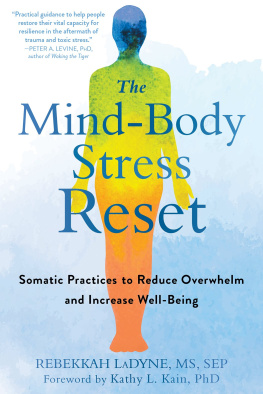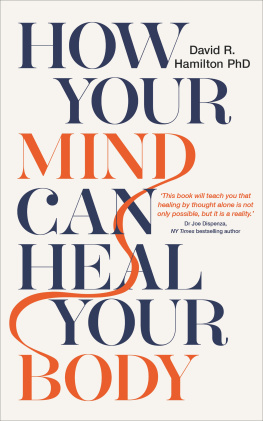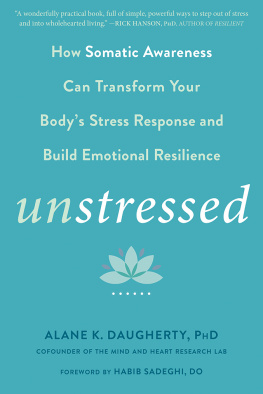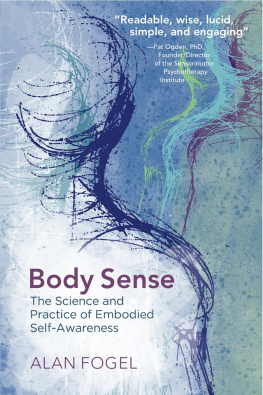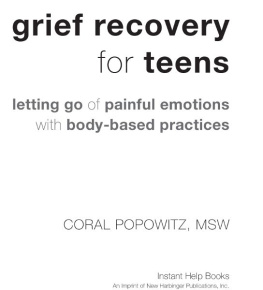Mind-Body Intelligence
How to Manage Your mind Using Biofeedback & Mindfulness
by Glyn Blackett
Copyright 2014 by Colin Glyn Blackett
All rights reserved. This book or any portion thereof may not be reproduced or used in any manner whatsoever without the express written permission of the author except for the use of brief quotations in a book review.
Table of Contents
1
Introduction: How To Manage Your Mind
1 Introduction
This book is about the mind and how to manage it, or how to be in possession of it, or even how to control it. Happiness and well-being are intimately connected to the mind to feel happy and well you need to be able to access positive emotions, energy and motivation, and you need to be able to direct or focus the mind at will, and sustainably. These qualities aren't simply givens, but are complex abilities that develop to a greater or lesser extent as we move through life.
In this book I use the term self-regulation to sum up these abilities. I also use the term self-control, though it does have a somewhat negative connotation of mind control (on the other hand self-regulation may sound a little mechanistic and even automatic).
The core idea of the book is that self-regulation or self-control is a hierarchical set of skills that can be developed and trained. In its essence, self-regulation is a mind-body skill, which is to say that to manage your mind you need to simultaneously manage the physiology (both body and brain) that is the concomitant of your mental experience. Hence the words used in the title, mind-body intelligence, are another way to describe the skill-set.
The book is an attempt to lay the groundwork for a practical project of learning or developing mind-body intelligence. I describe the science behind the mind-body connection as an important basis for understanding this project, and then I present a set of models or ways of thinking about self-regulation and challenges to it, and a set of tools and practices for developing and training it.
I see three core domains for the skill-set of self-control:
Emotional balance and resilience
Energy, drive and motivation
Attention, focus and concentration
2 The Problem: Being Out of Control
Being out of control feels bad. When people seek help from a psychotherapist or coach, it's because something feels out of control, or is unmanageable.
2.1 Case Vignettes
The following vignettes are made up but they all represent typical problems I encounter in my therapy / coaching practice. Throughout the book I refer to these types of problem collectively as self-control challenges or self-regulation challenges.
2.1.1 Anxiety
Barbara had quite senior job as a manager in a public sector organisation. She was intelligent and capable and for the most part enjoyed her job, except for one thing: giving presentations. As soon as she knew she would have to present at a meeting she would start getting anxious.
In meetings she would feel tense, her heart would pound, her hands would feel cold and clammy and her breathing tight and restricted. She knew she was likely to blush and her voice crack. When she stood up she felt everyone could see she wasn't up to it and expected her to fail, though later when she'd calmed down she knew this wasn't the case.
Barbara did everything she could to avoid having to give presentations but it wasn't always possible. Anticipatory anxiety started to build even days before. She couldn't stop thinking about the coming presentation. She'd try to calm herself down, telling herself she'd done presentations before and always got through them. She'd read books on stress management techniques and could even do them quite successfully if she didn't have a presentation coming up. But when the heat was on, these skills would frustratingly desert her. Her anxiety was out of control.
2.1.2 Anger
Tim liked playing tennis but his Achilles heel was his temper. On good days he could get into the zone and loved the feeling of his body timing shots well. But good days were probably more the exception than the rule. At other times he couldn't understand how he could play so badly when he knew he could and should do better. On bad days his rage would build to a fever of self-contempt. He'd tell himself to focus harder on his grip, or his foot work, but if anything things would get worse. His temper explosions had led to physical damage on more than one occasion, and tennis racquets weren't cheap. Socially he was aware that other people at his club didn't like to play with him.
If he was honest, it wasn't just tennis where Tim's temper was making things hard for him. He knew all about road rage. He was afraid of getting himself the sack by screaming at his boss. Tim's attempt to keep a dam on his rage always seemed to fail.
2.1.3 Craving
Jane wanted to lose a few pounds in weight so she decided to stop eating chocolate for a few weeks at least. Jane had always loved chocolate and she knew from experience that if she had one piece she'd finish the bar. So she resolved to go cold turkey no more chocolate.
Evenings at home were the danger time. Thoughts of chocolate would frequently pop into her mind as she watched TV. She'd try to dismiss them from her mind, but they'd just creep back in again in an unguarded moment. In fact it seemed the more she resolved to resist, the more persistent her cravings became.
2.1.4 Addiction
David had a well-paid job, a loving wife and two children, but his gambling habit risked wrecking everything. His work as a travelling salesman gave him the resources to burn, and opportunities to visit bookies and even casinos. He loved the buzz, the adrenalin rush, that gambling gave him. Of course he'd tried to give it up before but life just seemed flat and tedious. He felt most alive when he was listening to the racing commentary or watching the roulette wheel spin. But win or lose, he never felt satisfied and soon started to think about the next bet.
2.1.5 Procrastination
Alejandra had a deadline to submit her Ph.D. in just a few months, when her visa would expire and she'd have to leave the country. She'd collected most of her data and really only had to write it up. Each day she arrived at the office resolved on writing a chapter or even a section, but it wasn't long before she was browsing Facebook or catching the latest news. Alejandra was staring to feel anxious about the prospect of finishing in time but this seemed to make things worse. When she'd put in an hour of work she felt relaxed enough to reward herself with a few minutes of surfing but that would turn into an hour. And even her work time was more likely to be spent reading one more research paper that she knew she didn't really need to read - anything but writing.
2.1.6 Concentration
Alison was a manager in a large company who could never seem to wake up feeling sharp and clear headed, however long she slept. Her performance at work was flagging. She attended lots of meetings and listened to lots of presentations but struggled to concentrate. No matter how hard she tried she drifted off into daydreams or even just blankness. It wasn't just concentration that was a problem just holding things in mind was hard. In conversation she'd think of a constructive thing to say but often, by the time the other person had finished speaking she'd forgotten what it was. At home she found herself at times going into the kitchen and wondering what she came for. She described her state as brain fog.



